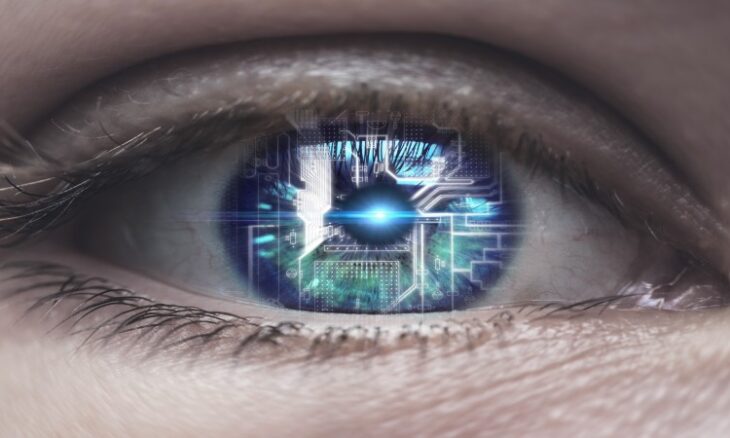AI Chip Restores Vision Through AR Retinal Implant
A pioneering clinical trial led by University College London (UCL) and Moorfields Eye Hospital has marked a major milestone in artificial vision. Researchers have successfully used an artificial intelligence (AI) chip-driven retinal implant, paired with augmented-reality (AR) glasses, to restore partial sight to individuals who had lost central vision due to geographic atrophy, the late stage of dry age-related macular degeneration (AMD).
Published in the New England Journal of Medicine, the findings revealed that 84 per cent of participants regained the ability to identify letters, numbers, and words with the help of the implant. Many of them had previously been unable even to discern basic shapes or outlines on a vision chart. The study’s results signify one of the most remarkable developments in ophthalmic science to date.
The implant, named the PRIMA System, is a miniature subretinal microchip measuring just 2 millimetres by 2 millimetres and 30 microns thick, roughly the size of a SIM card. It functions wirelessly through AR glasses that project near-infrared light onto the chip. An external computer, worn at the waist, employs AI algorithms to process visual information and translate it into electrical impulses. These impulses are transmitted via the optic nerve to the brain, producing artificial sight.
This technology does not rely on synthetic eyes or science fiction concepts; instead, it uses a sophisticated blend of microengineering, optics, and artificial intelligence to simulate natural human vision.
Dry AMD affects an estimated five million people globally, with an increasing prevalence among ageing populations, including in Singapore. Beyond medical implications, innovations like the PRIMA System hold significant promise for improving the quality of life and independence of elderly individuals facing vision loss.
Experts have described the trial as a transformative moment in the field of vision restoration. The ability to restore reading and object recognition in individuals previously diagnosed with irreversible blindness represents a profound shift in both medical potential and emotional well-being. The treatment has been shown to enhance patients’ confidence and sense of autonomy, rekindling abilities many had believed were lost forever.
The surgical procedure required to implant the PRIMA System takes approximately two hours and can be performed by any trained retinal specialist. This accessibility could prove critical in broadening adoption once the device gains regulatory approval. Patients participating in the trial have demonstrated inspiring progress in adapting to their restored vision, engaging once again in reading, writing, and daily activities that demand visual precision.
One patient, who had long struggled with complete central blindness, was able to resume reading after the implant and has since returned to hobbies such as solving crosswords and recognising small print on packaging. Another participant in France reportedly uses the device to navigate public transport systems independently, an early glimpse into how this technology may revolutionise mobility for people with severe vision impairment worldwide.
Despite its success, the rehabilitation phase remains crucial. The technology requires patients to undergo months of visual retraining to interpret the artificial images created by the implant. Researchers highlighted that none of the patients lost any residual peripheral vision, a critical factor in confirming the procedure’s safety and viability.
The PRIMA System was developed by Science Corporation, a neural engineering firm specialising in brain-computer interfaces and neuroprosthetic devices. With no established treatment for geographic atrophy, this breakthrough may soon lead to formal approval and eventual commercial release. Experts anticipate that the device could also be adapted to treat other retinal and optic disorders in the near future.
For Singapore and other rapidly ageing societies, such innovations may arrive just in time. The prospect of restoring sight to those who had resigned themselves to blindness represents not merely a technological leap but also a profound restoration of human dignity and independence. If clinical outcomes continue to progress as expected, AI-assisted retinal implants could soon redefine what it means to see again in the modern era.










